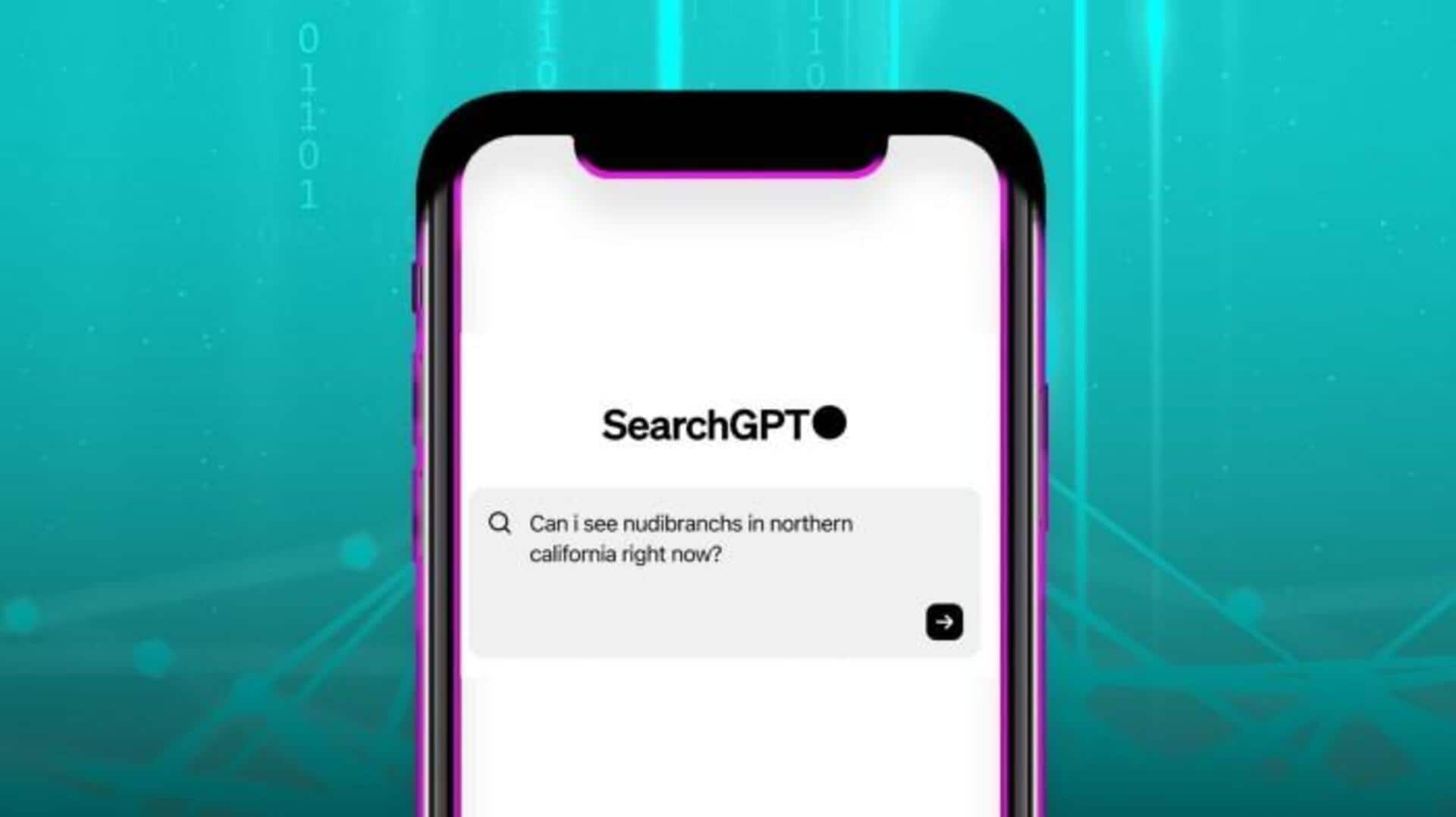
SearchGPT: OpenAI declares war on Google with new search engine
What's the story
OpenAI has announced the development of a new AI-powered search engine named 'SearchGPT.'
The company aims to rival tech giants such as Google and Perplexity with this new offering.
Currently in its prototype stage, SearchGPT is only accessible via a waitlist but is expected to be widely available in the future.
According to OpenAI, SearchGPT "combines the strength of our AI models with information from the web to give you fast and timely answers with clear and relevant sources."
User experience
SearchGPT: A user-friendly interface with direct answers
SearchGPT's interface mirrors Google's start page, inviting users to input their queries with a prompt, "what are you looking for?"
The search engine provides direct answers similar to Perplexity or Google's AI Overviews feature.
Upon entering a search query, users receive a list of results along with a brief description that prominently cites the source of the information.
Users can view all sources on the left side of the page for more information and ask follow-up questions for better clarity.
Unique features
SearchGPT: A new approach to real-time information retrieval
SearchGPT allows users to enter queries as they would on any traditional platform, but it stands out by providing conversational responses with real-time information pulled from the web.
Similar to ChatGPT's Browse feature, SearchGPT offers a link with the site name it sourced its answer from in parentheses for easy fact-checking and research.
The prototype is currently available to around 10,000 users and publishers as OpenAI collects feedback.
Those interested in trying the prototype can join the waitlist.
Publisher relations
OpenAI addresses concerns over publisher impact
OpenAI has taken steps to address concerns that AI search engines could potentially affect publishers by causing fewer people to visit their websites.
Per the company, SearchGPT was designed to connect publishers and users by including proper attribution, linking, and citing to the original source.
Publishers can also manage how their webpages appear in SearchGPT and can choose not to have their content used for training OpenAI's generative AI models while still having their webpages appear in SearchGPT's results.
Future plans
OpenAI's vision: Enhancing ChatGPT, not competing with Google
Despite Google's dominance in the search engine space with a 91% share according to StatCounter, OpenAI is not interested in creating another search engine.
"While this prototype is temporary, we plan to integrate the best of these features directly into ChatGPT in the future," said OpenAI.
The company believes that users who consistently use ChatGPT will be incentivized to use it more with the added bonus of what search engines offer.
The exact rollout date for all users remains unknown.